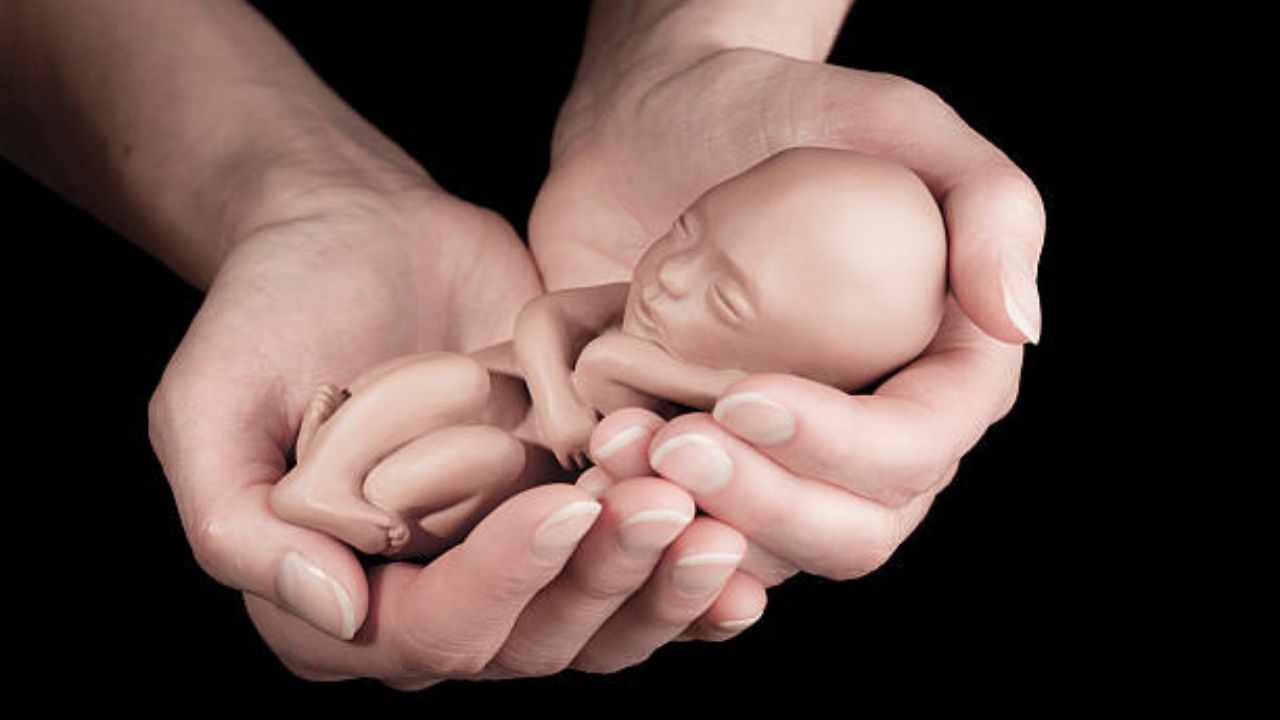The Miscarriage 6 weeks symptoms depend on how and at what point in the pregnancy the miscarriage occurs. The most common sign is bleeding from the vagina. Labor-like pains are also signs of a miscarriage.
What is a miscarriage?
A miscarriage (abortion) is a premature termination of pregnancy before the 20th week of pregnancy. It occurs most commonly within the first seven weeks of pregnancy.
About one in five pregnancies results in a miscarriage. A miscarriage up to the 12th week of pregnancy is referred to as an early abortion. A miscarriage can have different causes, which lie either with the mother or the child. Vaginal bleeding or abdominal pain can be signs of an impending miscarriage.
Although there are many possible causes, in many cases the exact cause is unknown. The most common Miscarriage 6 weeks symptoms is vaginal bleeding, which can be accompanied by cramping pains in the lower abdomen.
Diagnosis is usually made through a series of blood tests and an ultrasound scan. Some pregnant women choose to let the miscarriage happen naturally, while others prefer medical treatment after a miscarriage.
Emotional support for the family is an important part of miscarriage treatment. Counseling can also be helpful. In many cases, a miscarriage is a single event and a woman who suffers it can conceive again without difficulty.
Frequency of miscarriages
About 10 to 15 percent of medically diagnosed pregnancies end in miscarriage. There are also pregnancies that can only be detected in the laboratory. This shows an increase in a certain value (ß-hCG), but there are still no clinical signs. If you include these pregnancies, the abortion rate is around 50 to 70 percent.
It is also observed that the miscarriage risk increases with each loss suffered. The age of the mother also plays a role. The likelihood of an abortion increases with age. A 40-year-old woman has a 40 percent chance of miscarriage.
Missed abortion: in which week of pregnancy is it most common?
The so-called missed abortion (also missed abortion or missed miscarriage) occurs predominantly up to the 12th week of pregnancy. Typical symptoms of a miscarriage such as bleeding are absent and the dead embryo remains in the uterus.
Risks of miscarriage
A miscarriage is premature termination of pregnancy before the end of the 20th week of pregnancy. The risk of miscarriage is highest in the first seven weeks of pregnancy. There are many reasons that can cause a miscarriage, but in many cases the exact cause is unknown.
Women over the age of 30 have an increased risk of miscarriage and the risk continues to increase with age. Some diseases can cause multiple miscarriages. These are mainly autoimmune (where the immune system attacks the body’s own tissue) and hormonal diseases.
Some infections can also cause a miscarriage. Other factors that increase the risk of miscarriage include drug and alcohol use during pregnancy, obesity, and smoking.
What causes miscarriage?
It is difficult to know exactly why a miscarriage occurs. However, it almost never happens because of something the pregnant person did. Normal activities like having sex, exercising, working, and taking most medications DO NOT cause miscarriage. Minor injuries, such as falling, usually don’t cause a miscarriage either.
Some things that are known to cause a miscarriage include:
- When the fertilized egg has a number of chromosomes (genes) that is not normal. This happens randomly, so you can’t prevent or provoke it.
- Certain medical conditions, such as severe diabetes, can put you at higher risk of miscarriage.
- A very bad infection or serious injury can cause a miscarriage.
- Late miscarriages — after 3 months — can happen when something in your uterus isn’t normal.
- If you’ve had more than 2 miscarriages in a row, there’s a good chance you’ll have another.
In addition, medication can be to blame for the miscarriage, a malformation of the placenta or a malformation of the uterus, just like a fall/accident, alcohol or drug abuse. Infections can also lead to miscarriage.
Often, however, the causes cannot be precisely determined.
Miscarriage 6 weeks symptoms

Miscarriage: These are typical signs
It’s normal for your stomach to tug. A lot changes in a woman’s body at the beginning of pregnancy. This is usually not a miscarriage. Avoid unnecessary stress and give yourself and your baby a break from time to time.
However, the following signs can be an indication that something is wrong. If you have these symptoms, you should always consult a doctor who will carry out a thorough examination:
- Bleeding, even if it is light.
- Severe, cramping pains in the lower abdomen.
- Strong drawing in the lower abdomen.
- Severe lower back pain.
- Fever and purulent discharge.
- in advanced stages of pregnancy amniotic fluid may leak.
The most common symptom of a 6 weeks miscarriage is vaginal bleeding. There may be cramps and pain in the lower abdomen, and lumps and fluid may leak from the vagina.
Diagnosis of miscarriage
The diagnosis of miscarriage is made based on the symptoms and a pelvic exam, along with blood tests and an ultrasound scan. Blood tests for the pregnancy hormone beta-hCG (human chorionic gonadotropin) may be done over a period of a few days to see if the pregnancy is continuing. The level of this hormone drops when a miscarriage has occurred.
An ultrasound of the uterus may be done to see if there are any signs of pregnancy. However, this can be unreliable in the early weeks of pregnancy, so blood tests tend to provide more reliable information. If a woman has had multiple miscarriages, further tests may be done to find the underlying cause.
Treatment for miscarriage
There are few options for the approach after a miscarriage. Many sufferers choose to wait and let the miscarriage unfold naturally.
Another ultrasound scan or blood test will be done to see if further treatment is needed. Some women need to take medication or have surgery to remove the remaining tissue.
Miscarriage can be a difficult event, so good emotional support and counseling can help some families.
Prevention of miscarriage
In some cases, miscarriage cannot be prevented. Women who have a chronic medical condition should discuss pregnancy with their doctor before conceiving to determine possible actions that can reduce the risk of miscarriage.
There are some medical conditions that can cause multiple miscarriages in a woman, and sufferers should be evaluated for them and treated if necessary. Some general measures that can reduce the risk of miscarriage include avoiding alcohol and tobacco before pregnancy, getting immunizations, treating infections, and maintaining a healthy weight.
What happens after a miscarriage?
Although abortion means that the woman’s body rejects or expels the fetus, in most cases further medical treatment in the form of a curettage is required afterwards. It is important to remove any remaining part of the placenta or embryo from the uterus to prevent infection. A scraping usually takes place under general anesthesia and is carried out on an outpatient basis.
After a miscarriage, a world seems to collapse for the parents. The pain is infinite. Don’t blame yourself. A majority of miscarriages are due to a genetic cause, which can be inherited from either the mother or father.
Summary
Most miscarriages are single events and most women can get pregnant again after a miscarriage.
